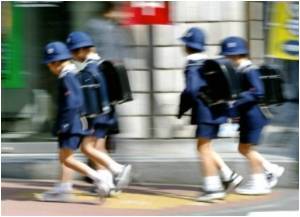We have adequate research informing us about the adverse effects of corporal punishment on children and yet there many schools in the U.S that unabashedly resort to it.

The research conducted by scientists compared the cognitive abilities of kindergarten and grade 1 children from West African private schools. Some of these schools adopted corporal punishment as a form of disciplining children while others followed non-physical methods.
“Executive functioning tests” were administered to children to check their ability to plan and to think out of the box. The grade 1 students who were at the receiving end of corporal punishment did not perform well. The kindergarten kids performed in a similar manner irrespective of whether they were subject to physical or non-physical forms of punishment.
Researchers concluded that corporal punishment in the long term can affect children’s problem-solving skills and impair their ability to discern right and wrong. Non-physical form of punishment like time-outs or cancelling privileges works better in reinforcing good behavior.
Source-Medindia







